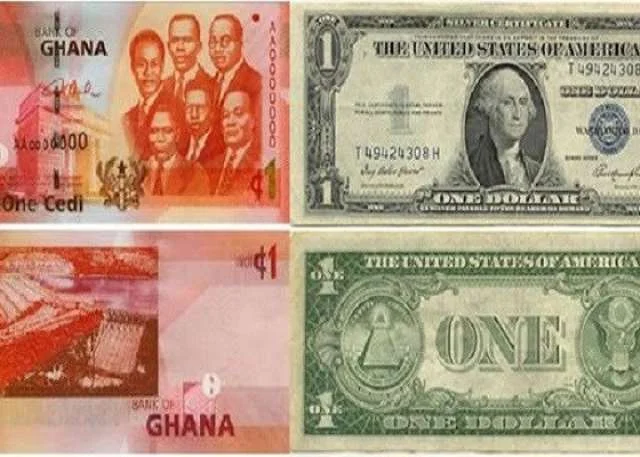On January 2, 2021, reports confirmed Ghana’s cedi depreciated by 3.9% against the US dollar in 2020, closing at approximately GHS 5.76 per dollar.
The decline, reported by the Bank of Ghana, marked a challenging year for the currency amid global economic disruptions.
COVID-19 Drives Decline
The COVID-19 pandemic significantly impacted the cedi’s performance. Lockdowns disrupted exports, particularly cocoa and oil, reducing foreign exchange inflows. A widened trade deficit and reduced investor confidence further pressured the currency, despite its relative stability compared to other African currencies.
Central Bank Interventions
The Bank of Ghana implemented measures to curb the cedi’s fall, including foreign exchange auctions and tighter monetary policies. These efforts limited the depreciation to 3.9%, a milder decline than the 12.9% drop in 2019, showcasing improved management despite global challenges.
Market Performance Insights
Analysts noted that high demand for dollars from importers strained the cedi. “The pandemic reduced export earnings, while import demands persisted,” said Dr. Kofi Mensah, an economist at Accra-based Wealth Analytics. Remittances from Ghanaians abroad, a key forex source, also dipped due to global economic slowdowns.
Comparison with Regional Currencies
The cedi outperformed some regional peers, like Nigeria’s naira, which fell over 20% in 2020. Ghana’s trade agreement with the UK, signed in March 2021, aims to boost exports like cocoa and bananas, potentially supporting the cedi in the future.
Economic Outlook for 2021
Looking ahead, analysts expect cautious recovery for the cedi. The Bank of Ghana targets single-digit depreciation in 2021, banking on vaccine rollouts and export growth. However, risks like global market volatility and domestic fiscal challenges remain. “Stabilizing the cedi requires sustained reforms,” Dr. Mensah added.
Impact on Ghanaians
The cedi’s decline raised import costs, affecting prices of goods like electronics and fuel. Consumers faced higher living expenses, but government subsidies on essentials provided some relief. Businesses now eye the African Continental Free Trade Area (AfCFTA), launched January 1, 2021, to expand trade and strengthen the economy.






